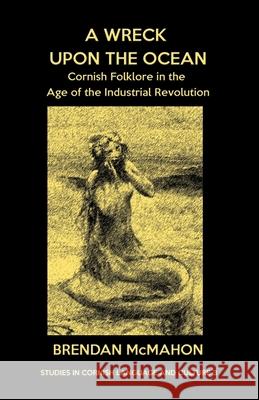A Wreck upon the Ocean: Cornish Folklore in the Age of the Industrial Revolution » książka
A Wreck upon the Ocean: Cornish Folklore in the Age of the Industrial Revolution
ISBN-13: 9781782010982 / Angielski / Miękka / 2015 / 128 str.
A Wreck upon the Ocean: Cornish Folklore in the Age of the Industrial Revolution
ISBN-13: 9781782010982 / Angielski / Miękka / 2015 / 128 str.
(netto: 60,78 VAT: 5%)
Najniższa cena z 30 dni: 64,00
ok. 16-18 dni roboczych
Bez gwarancji dostawy przed świętami
Darmowa dostawa!
In the nineteenth century the small nation of Cornwall underwent profound social and economic change. It became one of the first European regions to industrialize, and exported tin and copper to the world, along with the engineers and miners who extracted them. But bust followed boom, and emigration became high. Mortality rates and famine took their toll on a small community which had recently lost its language and was struggling to maintain its identity in the face of growing encroachment from across the Tamar. In the 1840s, driven by a growing sense that modernity was driving out the old folkways and beliefs, two Cornish scholars, Robert Hunt and William Bottrell, began to collect the ancient Celtic stories of pisgies, mermaids, and giants which had been passed down by generations of fisherfolk and tinners since time immemorial in the far west. Though many stories must have been lost with the passing of the Cornish language, those that survived enabled the community to articulate its sense of loss, and its anxieties about identity and change. This book explores that process. Brendan McMahon is a retired psychotherapist and university teacher living in Derbyshire. He has published widely on the psychodynamics of Celtic myth and legend, and his book The Princess Who Ate People appeared in 2006.
In the nineteenth century the small nation of Cornwall underwent profound social and economic change. It became one of the first European regions to industrialize, and exported tin and copper to the world, along with the engineers and miners who extracted them. But bust followed boom, and emigration became high. Mortality rates and famine took their toll on a small community which had recently lost its language and was struggling to maintain its identity in the face of growing encroachment from across the Tamar.In the 1840s, driven by a growing sense that modernity was driving out the old folkways and beliefs, two Cornish scholars, Robert Hunt and William Bottrell, began to collect the ancient Celtic stories of pisgies, mermaids, and giants which had been passed down by generations of fisherfolk and tinners since time immemorial in the far west. Though many stories must have been lost with the passing of the Cornish language, those that survived enabled the community to articulate its sense of loss, and its anxieties about identity and change. This book explores that process.Brendan McMahon is a retired psychotherapist and university teacher living in Derbyshire. He has published widely on the psychodynamics of Celtic myth and legend, and his book The Princess Who Ate People appeared in 2006.











